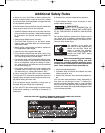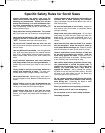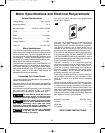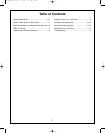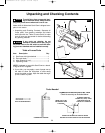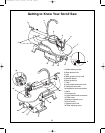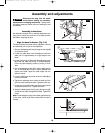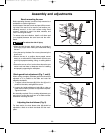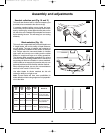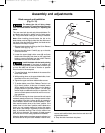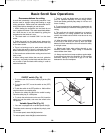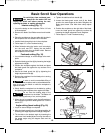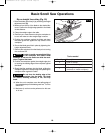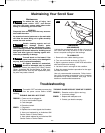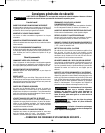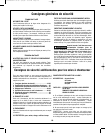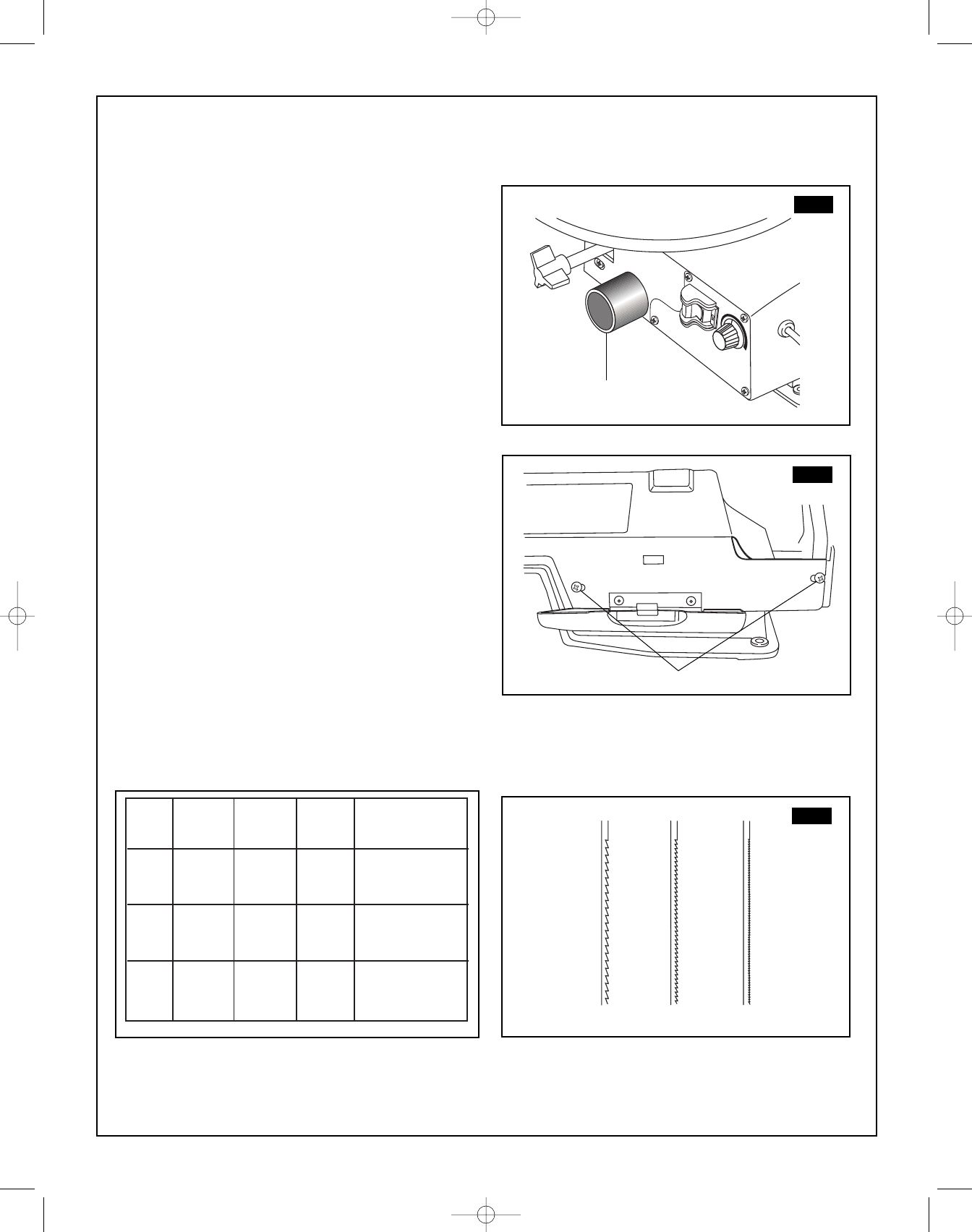
12.
Assembly and adjustments
Sawdust collection port (Fig. 10 and 11)
This scroll saw allows a hose or vacuum accessory (not
provided) to be connected to the dust chute (1).
If excessive sawdust buildup occurs inside the base,
use a wet/dry vacuum cleaner or manually remove saw-
d
ust by removing the screws
(
2)
a
nd metal plate on the
left side of the saw. Reattach the metal plate and screws
before starting the saw. This will keep your saw cutting
efficiently.
Blade selection (Fig. 12)
This scroll saw accepts both both pin-end and plain-end
5" length blades, with a wide variety of blade thickness-
es and widths. The type of material and intricacies of
cutting operations will determine the number of teeth per
inch. Always select the narrowest blades for intricate
(tight radius and curves) curve cutting and the widest
blades for straight and large curve cutting operations.
The following table represents suggestions for various
materials. When purchasing blades, refer to the back of
the package for best use of blades on various materials.
Use this table as an example, but practice and your own
personal preference will be the best selection method.
When choosing a blade, use very fine, narrow blades to
scroll cut in thin wood 1/4" thick or less.
Use wider blades for thicker materials but this will
reduce the ability to cut tight curves.
Note: Thinner blades will have more possibilities for
blade deflection when cutting angles are not perpendic
-
ular to the table.
FIG. 10
1
2
FIG. 11
10 - 15 15 - 28 30 - 48
FIG. 12
Teeth/ Blade Blade Blade/
Inch Width Thickness SPM Material Cut
TPI inch inch
Medium turns on
10-15 0.110 0.018 500-1200 1/4" to 1-3/4" wood,
soft metal, hardwood
Small turns on 1/8"
15-28 0.055-0.110 0.010-0.018 800-1700 to 1-1/2" wood, soft
metal, hardwood
Non-ferrous
30-48 0.024-0.041 0.012-0.019 Varies metals/hardwoods
using very slow speeds
SM 2610957121 05-08 6/5/08 7:35 AM Page 12



